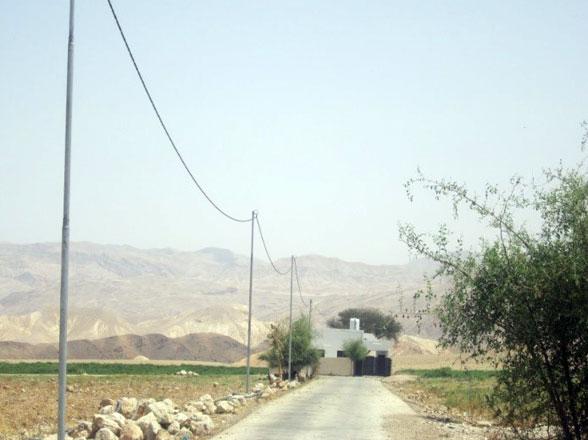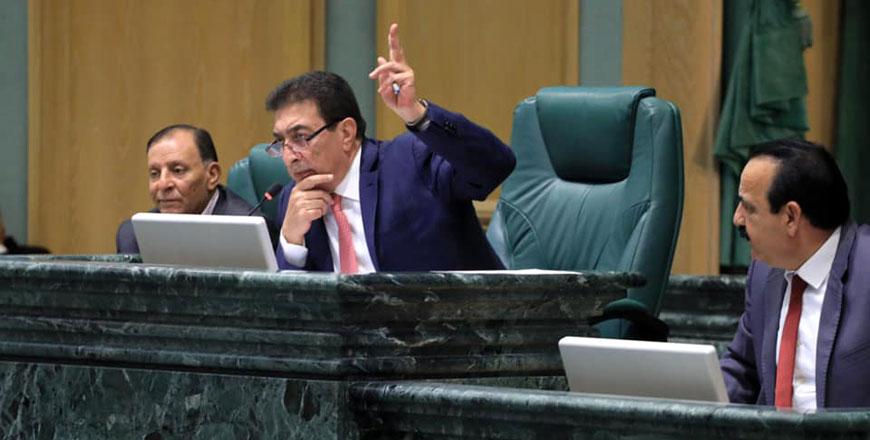You are here
Joint parliamentary committee urges recalculation of electricity bills
By JT - Mar 08,2020 - Last updated at Mar 08,2020

A joint parliamentary committee on Sunday recommended that electricity companies refund overpayments to customers for December and January according to recalculated bills (Photo courtesy of Energy Ministry)
AMMAN — A joint parliamentary committee on Sunday recommended that December and January electricity bills be recalculated according to the "normal" rates.
The joint committee, comprising members of the energy and finance committees, also recommended that electricity companies refund overpayments to customers according to the recalculated bills.
A number of citizens had voiced complaints concerning electricity price hikes seen in household electricity bills for December and January, the Jordan News Agency, Petra, reported.
The Lower House in February tasked the joint committee at the time with preparing a report on the recent complaints regarding electricity price hikes.
Prime Minister Omar Razzaz directed all related bodies to fully cooperate with the committee during the process.
In addition to recounting the bills, the committee recommended that waste surcharges, which are usually added to electricity bills, not be linked to energy consumption.
It also recommended that electricity companies take electricity meter readings during billing periods, install smart meters immediately and merge consumer categories.
The committee also called for developing a feature for submitting complaints on the Energy and Minerals Regulatory Commission's (EMRC) website.
Criticising the electricity tariff system, MPs who attended the joint parliamentary committee meeting on Sunday also called for the abolition of surcharges listed on electricity bills, including differences in fuel prices, waste services, interests of debts and costs of electricity loss, among other categories.
They also recommended intensifying penalties for violations such as electricity thefts, as well as reducing the number of consumer categories to only three.
Audit Bureau President Assem Haddad said that the price hikes were attributed to the move of subscribers from one category to another, along with the addition of the "differences in fuel prices" item to electricity bills.
According to Haddad, the bureau was tasked by the joint parliamentary committee with forming an auditing committee.
He noted that "no technical problems related to the tariff system have been detected".
The Audit Bureau's report also revealed that the value of the overall “electricity loss” during November and December of 2019 and January of this year are "unjustified", he said, noting that the increase in electricity loss ranged from 18 to 24 per cent.
EMRC President Farouq Hiyari said that the value of “electricity loss” charged to subscribers is identified by the commission, while electricity distribution companies pay the remaining amount, pointing out that the loss, if distributed over the whole year and not specific months, “will not increase” the bills.
Electricity loss generated from thefts dropped during recent years by JD31 million, while thefts are estimated at JD33 million a year, he said, adding that around 20,000 thefts are documented every year, with the violators paying the costs through settlements.
The Kingdom's electricity loss rate is the lowest in the region, except for Lebanon, whose loss percentage is lower than Jordan's by 2 per cent, he said, noting that delays in reading the meters "do not affect the value of the bills, but are transferred to the next month".
Commenting on linking the waste surcharges with the consumption amount, Hiyari stressed that this only applies to subscribers in Amman.
Related Articles
AMMAN — The Lower House will convene a special session next Sunday to discuss the "controversial" December and January electricity bills.The
AMMAN — The value of the “electricity loss” witnessed in Jordan this winter was not added to citizens' electricity bills, two energy sector
AMMAN — The Energy and Minerals Regulatory Commission (EMRC) will replace all electric meters with smart ones by 2025, a move, experts said,













